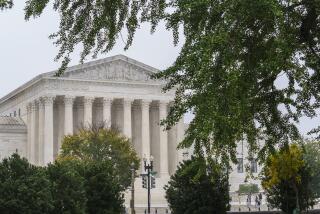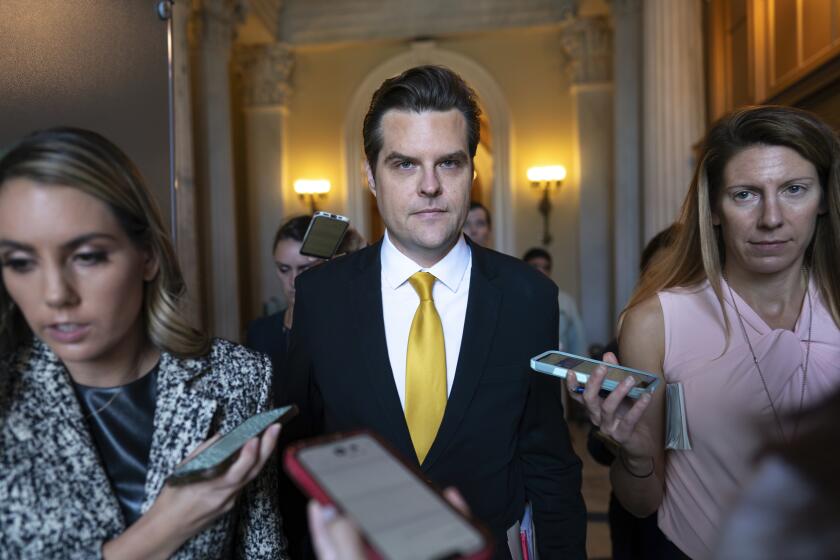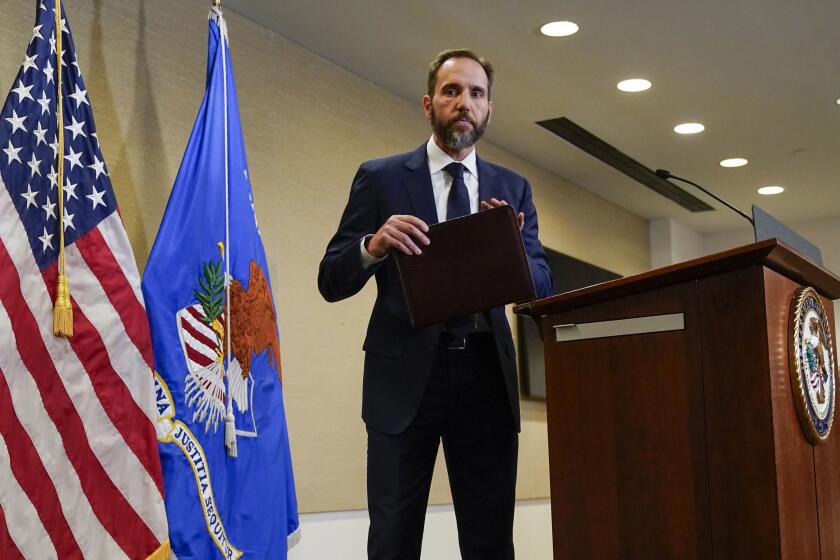Gay marriage: Whatâs most offensive about DOMA
After this weekâs arguments in the Supreme Court over same-sex marriage, the conventional wisdom is that five justices --including perennial swing vote Anthony Kennedy â are likely to strike down the federal Defense of Marriage Act defining marriage for federal purposes as the union of a man and a woman.
Supporters of same-sex marriage should take what they can get, but the likely rationale for such a decision â that Congress unconstitutionally overrode state definitions of marriage â is the ultimate argument of convenience for liberals, an example of what I like to call fair-weather federalism. And, of course, the statesâ-rights argument against DOMA undermines the case for gay marriage in the Proposition 8 case, in which California voters chose to write a ban on same-sex marriage into the state Constitution.
With a high school debaterâs eye for a possible contradiction in the opposing argument, Chief Justice John Roberts put an awkward question to Solicitor General Donald Verrilli:
âYou agree that Congress could go the other way, right?â Roberts asked. âCongress could pass a new law today that says, We will give federal benefits. When we say âmarriageâ in federal law, we mean committed same-sex couples as well, and that could apply across the board. Or do you think that they couldnât do that?â
TRANSCRIPT: U.S. Supreme Court arguments on DOMA
Roberts knows that a lot of supporters of same-sex marriage would be happy to have Congress adopt an inclusive definition of marriage that would benefit same-sex couples even in states where gay marriage was illegal. From a progressive point of view, one of Congressâ chief tasks is to vindicate individual rights in the face of obstruction by benighted states.
To his credit, Verrilli didnât fall into Robertsâ trap. Verrilliâs first answer was that Robertsâ scenario of an inclusive federal marriage statute âwouldnât raise an equal protection problemâ the way DOMA does. But, when Roberts pressed on, suggesting âyou donât think it would raise a federalism problem either, do you?â Verrilli responded: âI donât think it would raise a federalism problem.â
That answer may have discomfited some supporters of marriage equality â including some liberal justices â but I give Verrilli high marks for intellectual honesty. What is outrageous about DOMA isnât that it overrides stateâs rights; itâs that it violates the rights of gay couples.
ALSO:
On pot laws, respect the states
Goldberg: The wisdom of Dan Quayle
More to Read
A cure for the common opinion
Get thought-provoking perspectives with our weekly newsletter.
You may occasionally receive promotional content from the Los Angeles Times.











